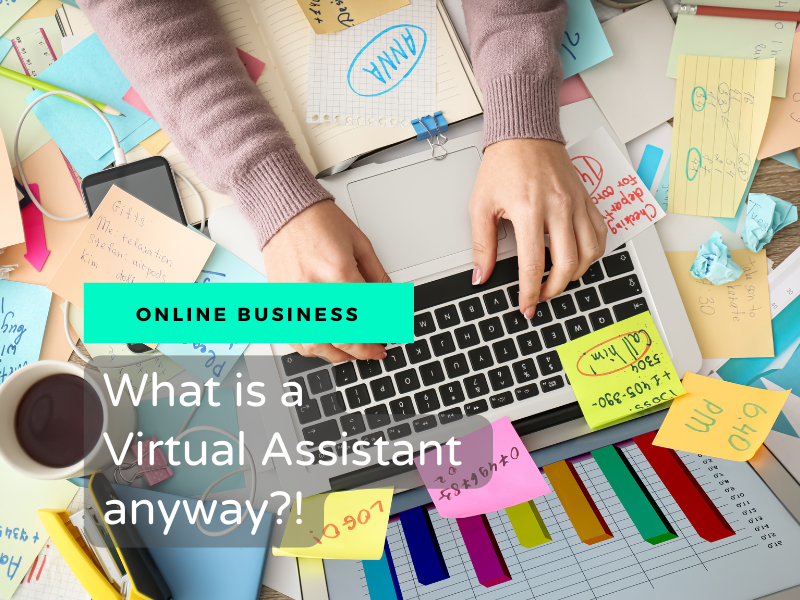In the simplest terms, a virtual assistant is a business’s secret weapon. VAs work remotely, providing support services to businesses from anywhere in the world.
Now if this description sounds vague, it’s because it is! Virtual assistance can mean literally anything — as in, “assistance provided virtually.” Any business (or personal!) task that can be done remotely can be done by a virtual assistant.
Common responsibilities include:
- Administrative duties: Scheduling appointments, managing emails, and organizing files.
- Social media management: Crafting posts, engaging with followers, and analyzing metrics.
- Customer service: Handling inquiries, processing orders, and managing feedback.
- Bookkeeping: Tracking expenses, invoicing clients, and managing paperwork.
Virtual assistants are typically freelancers/independent contractors. That means they are their own boss, and the businesses who hire them are their clients.
Why Small Businesses Should Consider a Virtual Assistant
You might be wondering why hiring a VA is often better than hiring an in-house, part-time employee.
The answer lies in the flexibility and cost-effectiveness they offer. Hiring in-house staff can be expensive when you factor in salaries, benefits, taxes and office space. Virtual assistants are an affordable alternative since they typically work on an hourly basis or per project.
In addition, VAs offer unmatched flexibility and scalability. As businesses grow, their needs tend to change. The VA can easily adjust their hours or add new tasks without the hassle of hiring additional employees.
Types of Virtual Assistants
If you’re interested in becoming a VA, know that not all VAs are created equal.
The more skilled you are and the less of an order-taker you are, the more valuable your services will be, and the more you can charge.
Especially now, with AI allowing computers to accomplish more than ever before, you’ll need to stand out with your skills and specializations in order to charge a premium.
Here are the basic types of VAs:
- Administrative Virtual Assistants: These are a business’s go-to for general office support, customer service, and organizational tasks.
- Specialized Virtual Assistants: Have a specific skill? Specialized VAs offer expertise in areas like graphic design, SEO optimization, or content creation. They typically won’t be the one creating the strategy or overall brand appearance, but will work with what they are given for the day-to-day needs of the company.
- Tech VAs: These are a subset of specialized virtual assistants who focus on— you guessed it!—tech and software. I added them as a separate category because it is the most in-demand area of virtual assistance.
- Industry-specific Experts: Some VAs specialize in particular sectors such as real estate or healthcare, bringing valuable industry insights to the table.
- Super-niched Experts: Some VAs will choose a skill AND a sector to specialize in, such as “social media management for mental health professionals.”
Benefits of Becoming a Virtual Assistant
In my opinion — and nearly 10 years’ of experience — VA is the most flexible and fulfilling career around.
- It’s quick and cheap to get started: in fact, you don’t need to spend a penny on degrees, software, or anything else at first.
- It’s highly in-demand: more and more work can be done remotely, and more and more businesses are waking up to the convenience and cost-effectiveness of hiring VAs, so demand will only increase.
- It’s super-flexible: you can work from anywhere with an internet connection, and depending on the type of work you’re doing, you can even work off a phone or tablet. Plus, you get to set your own hours!
- It’s rewarding: if you choose the clients whose product or service resonates with you, you get to experience endless fulfillment just because you’re helping people access the products/services they need.
How to Get Started
The easiest way is to just start.
- Decide on your pricing
- Set up a separate email address and bank account (Novo is great for freelancers and 100% fee-free)
- Find out the tax reporting requirements in your locale
- Tell your loved ones about your new venture and ask them to refer you to people
- When you get your first client, write up a clear statement of work to be approved by the client, and get to it 😊





